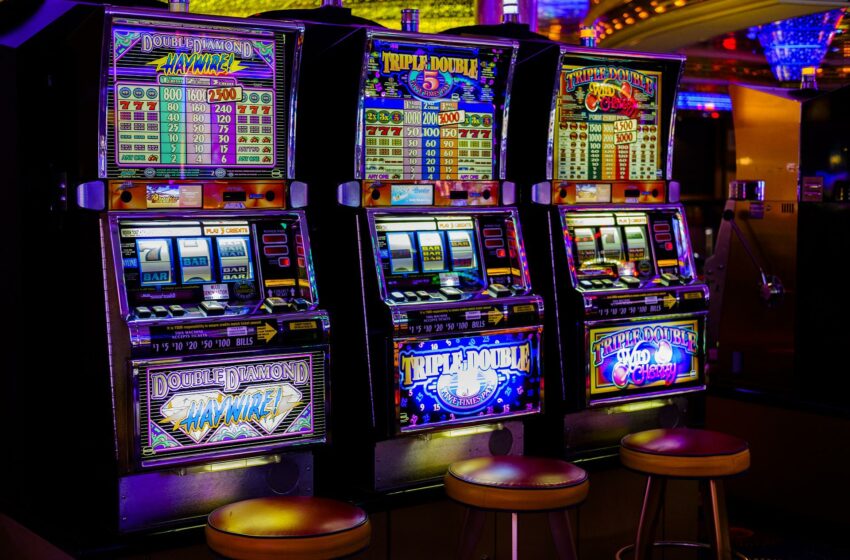
Gambling games have enthralled players throughout history, evolving from easy diversions to complex experiences that combine luck, skill, and amusement. From the early beginnings of gambling in cultures like Mesopotamia and Rome to the extravagant corridors of modern casinos, the journey of these games shows much about the human experience and our interaction with luck. As cultures have merged and technological advancements have occurred, casino games have evolved, illustrating societal changes and innovations in gameplay.
The primitive versions of gambling likely included simple dice-based games and wagering on the results of sports competitions. As time passed, these early games grew into more structured games like playing card games, roulette, and the multitude slot games that fill the floors of casinos today. Each era brought its unique rules, aesthetics, and social relevance. Today, casino games continue to evolve with the rise of online platforms, enabling players from everywhere to engage in a collective experience, further fusing the traditional with the age of technology.
Initial Beginnings of Casino Activities
Gaming games have roots that reach back to old civilizations, where wagering was deeply integrated in cultural traditions and social rituals. The initial known instances of gambling emerged in ancient Mesopotamia around 3000 BC, involving primitive die games made from bone bones. These initial activities laid the groundwork for more advanced gambling games, showing human beings’ innate desire to find wealth and entertainment through chance.
As civilizations progressed, so did their gambling interests. In early Chinese culture, around 2300 BC, objects were found that were similar to primitive basic versions of a lottery game activity. More organized forms of gambling developed in the ancient Roman civilization, where games of luck were a common recreation, often taking place in social gatherings. The ancient Romans developed multiple wagering games, which included dice and board games, showing the pervasive nature of gambling across various social classes.
With the passage of time, these early games contributed to the progress of modern casino activities. In the Middle Ages, card activities grew prevalent in European culture, paving the way for the organized gaming establishments we know today. The change from informal betting to organized gambling in pubs and private houses marked a major change in how people interacted with games of chance, leading to the eventual creation of casinos as specialized places for betting.
The Growth of Modern Casino Gaming
The late 20th century marked a crucial transition in the field of gambling games, driven by technological progress and transformations in societal views towards wagering. The emergence of computers and the World Wide Web transformed the way players engaged with their beloved casino games. Virtual casinos emerged, enabling players to enjoy timeless table games like poker and 21 from the convenience of their own homes. This emerging digital landscape not only broadened availability to casino games but also attracted a younger audience who found the ease and variety tempting.
As online gambling gained traction, so did advancements in gaming technology. The development of high-quality software and graphics converted classic gambling games into engaging adventures. Gamblers could now interact with authentic dealers through live streaming, bringing the atmosphere of physical casinos directly into their homes. casino en ligne fiable This fusion of live gaming with digital interfaces created a new hybrid model that enhanced the social aspect of playing, allowing it possible for individuals to connect and compete with fellow gamers around the planet.
Additionally, the emergence of mobile gaming substantially changed the gambling environment. With the ubiquitous use of mobile phones and touch devices, players can enjoy their beloved casino games everywhere, anytime. Mobile applications offer a vast array of options tailored for mobile screens, catering to the dynamic lifestyle of modern users. This easy access has led to rising participation in gambling, contributing to the surge of the gaming industry. As a result, the prospects of casino gaming continues to evolve, responding to technological advancements and changing consumer preferences.
The Impact of Technology on Casino Games
Technology’s advancement has significantly transformed casino games, improving the overall experience for players for players around the world. With the introduction of the internet, online casinos were created, allowing players to play their preferred games from the comfort of their homes. This shift not only made casino games more available but also expanded the variety of games offered, as online platforms could host numerous variations of traditional games without the physical constraints of physical casinos.
The rise of mobile technology further revolutionized the casino gaming landscape. As smartphones and tablets became widespread, players can to engage in casino games anytime and anywhere. This mobility has led to the development of dedicated mobile applications and optimized websites that offer smooth gaming experiences. Additionally, advancements such as live dealer games have brought the genuine feel of a casino into players’ living rooms, bridging the gap between physical and online gaming.
Furthermore, advancements in AI and virtual reality are paving the way for the next generation of casino games. AI improves game design and player interaction, creating tailored experiences based on user behavior and preferences. Meanwhile, virtual reality offers immersive environments where players can interact in a virtual casino environment, making the gaming experience more exciting and realistic. As technology continues to evolve, the future of casino games seems bright, filled with endless possibilities for advancements and entertainment.
